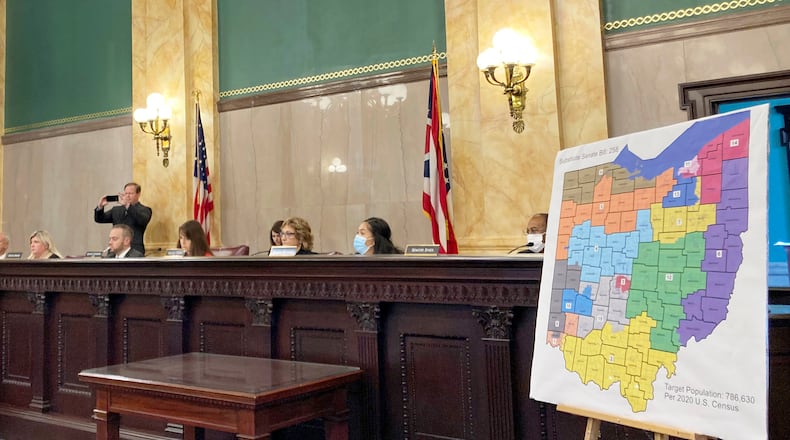The Ohio Organizing Collaborative, a coalition of labor, faith and grassroots community groups, is already suing the state over redistricting.
Lawyers for the group told the state Supreme Court on Thursday that the partisan breakdown of the latest maps is “nearly identical” to that of the maps that prompted them to sue in the first place. They argued that the absence of fair representation would harm and disenfranchise Ohio's communities of color.
The parties have “no choice” but to continue their challenge against the new maps, said Yurij Rudensky, senior counsel in the Democracy Program operation by New York University Law School’s Brennan Center for Justice, which is representing the petitioners.
“Letting these maps stand would be a breakdown in the rule of law and render Ohio Constitution’s guarantee of fair representation meaningless,” Rudensky said in a statement. "Ohio politicians have proven that they cannot be trusted with drawing district lines fairly. The only question is whether under the current process the court will continue providing a check against blatant abuses.”
The state Supreme Court realigned in January, after the departure of Republican Chief Justice Maureen O'Connor due to age limits. O'Connor cast the deciding swing vote in all the redistricting cases, siding with the court's three Democrats over her three fellow Republicans.
Republican Gov. Mike DeWine appointed Republican Joe Deters, a former state treasurer and Hamilton County prosecutor, to fill her vacancy.
Republican Senate President Matt Huffman swiftly rebuked the advocacy groups' rejection of the maps.
“Yet another desperate power grab by Washington, D.C., special interests that have no business holding the people of Ohio and the process hostage,” he said in a texted statement. Huffman emphasized that the process produced a 7-0 bipartisan vote this time around.
Thursday’s objections come as Ohioans are poised to see a constitutional amendment on 2024 ballots that would reform the existing redistricting process.
